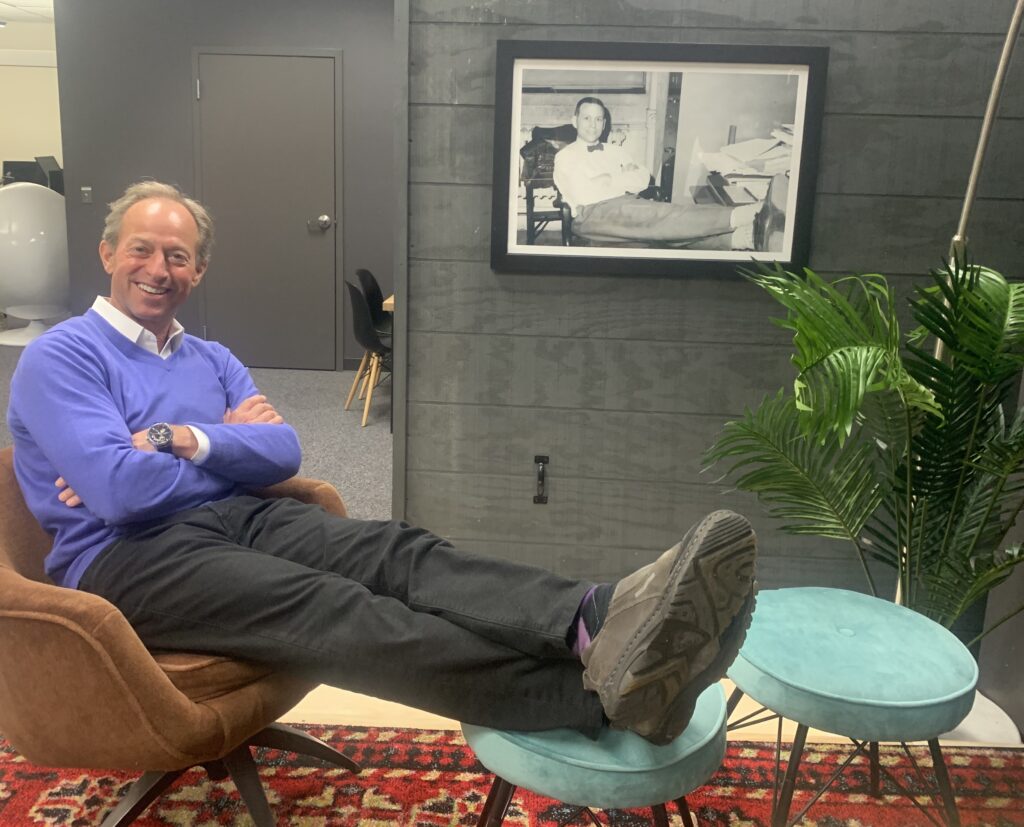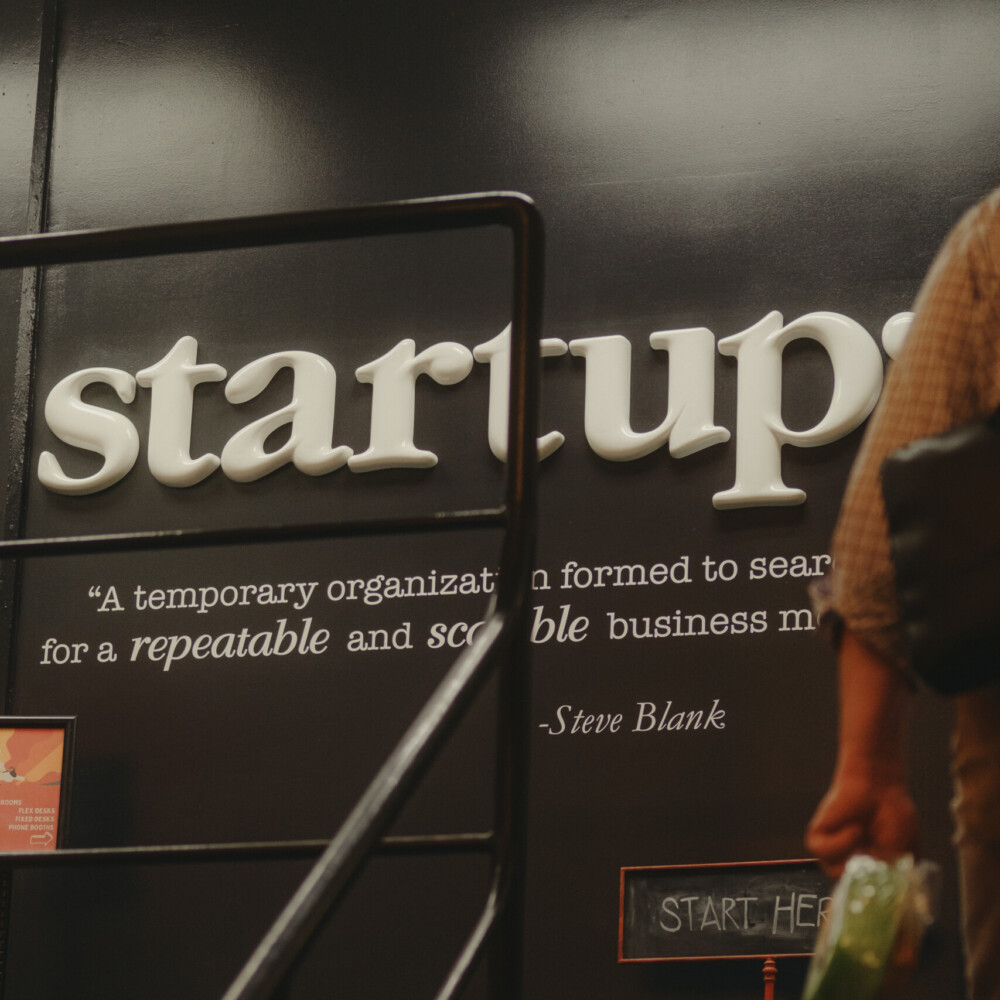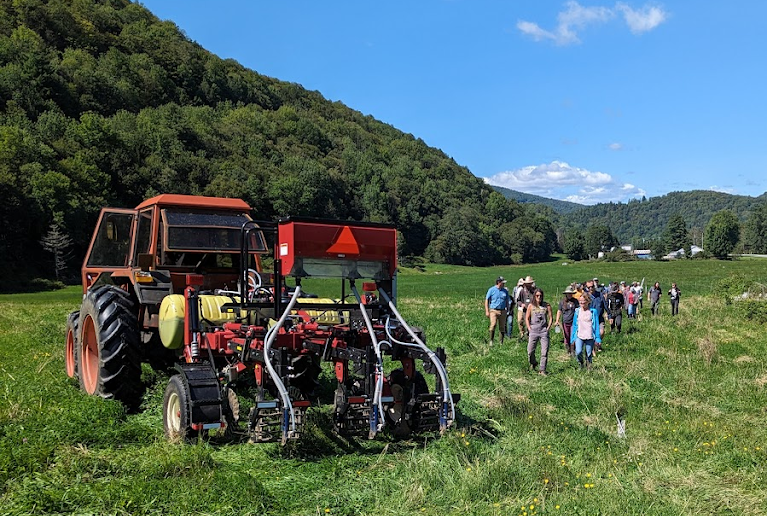Briar Alpert / Board Member Spotlight
Briar Alpert was a founding member of VCET’s board. In this Q&A, he speaks about his time in the Vermont public school system, his early career, and why he joined his father’s company, BioTek. In 2001, Briar became President & CEO of BioTek, which he ran until 2019 when the company was acquired. Learn about the decision to sell the family business, how Briar has since stayed busy, and why serving on VCET’s board is important to him.
Blaise: You were born in Chicago. What was your path to the Green Mountain State?
Briar: My family moved to Winooski [Vermont] in the mid ‘60s when I was about 10 years old. My father was a professor and he got an opportunity to be a department chair at the University of Vermont. So we moved here and I was a product of the public education system, going to Shelburne Middle School, Champlain Valley Union High School, and the University of Vermont.
Blaise: What was your experience at UVM? What did you study?
Briar: I got a BS in Mechanical Engineering. It was a reasonably good education. It was more focused on design than practicality; I think that’s a change that has been occurring at UVM over the decades since I went there. The university is recognizing that you need to provide practical, hands-on experiences to increase the capabilities and value of the students. And that wasn’t the case when I went there. It was theory and design – much less real-world experience.
Blaise: When you were growing up, your dad founded BioTek, a life sciences company, out of a neighbor’s garage. Was it always your plan to join the company once you graduated from university?
Briar: It was always available as an option. Right out of college, I got a job working for Pizzagalli, a regional construction company. They’re a good size, very well-known in the community. They hired me on Thursday and assigned me to a job in Portland, Maine on Monday. So I spent two years working for Pizzagalli as a construction engineer, focused on mechanical systems. However, after two years, the opportunities at BioTek were just so much greater for me.
Blaise: Before becoming President & CEO of BioTek in 2001, you worked for a range of departments, from engineering to marketing & sales. Was that purposeful?
Briar: It was by design that as soon as I became competent in what I was doing, I got moved to a new area that I was incompetent in. Probably ten, twelve years into my tenure, [BioTek] bought a company in Carson City, Nevada. And I took over responsibility as president for that standalone company. I had two or three years in manufacturing experience, a couple of years in R&D, a couple of years in marketing and sales, and then two or three years as a senior manager. Now I’m given a first chance to run an entire company; I spent a week a month for three years in Carson City, which is just south of Reno. So that was a great experience. I really started to get a feel for operating a whole company. When I eventually assumed the presidency of BioTek, I’d been there for 15 years.
Blaise: You served as CEO for nearly two decades before the company was sold in 2019 for over $1.2 Billion. How would you explain your success?
Briar: I assumed the presidency in a moment of crisis. We had done an acquisition in Europe that went terribly, and this took our business from about $80 million to about $20 million a year. But we came out of it with a focus on one line of business, and we started growing faster, with larger profit margins on the bottom. We really strengthened the organization and were able to change our strategy. For example, we changed our sales team from people who were salespeople to scientists who we taught how to sell. So, we would go hire PhD postdocs out of the University of Vermont, giving them an opportunity to really use their application and knowledge to sell. Our competitors would go in and say, ‘Let me show you my instrument. Let me tell you everything it can do.’ Whereas our person would go in as a peer scientist to the customer and say, ‘Tell me what you’re doing. What’s your workflow? What problems are you having? What would be great to solve?’ And then once our scientist understood what their problem was, they could then articulate how our instrument would solve their problem. And we just had huge success in competing with that. Five, six, seven years after the crisis period, we started to become known as the market leader. And then people just buy from you because you’re the market leader.
Blaise: When you sold the company, BioTek had been around for over 50 years, which is quite the feat. Was it a hard decision to sell?
Briar: We were acquired by Agilent, a multibillion-dollar, 18,000 person company. We were always making investments that we felt were in the long-term value of our customers and our employees, but it’s a family business. My brother had retired, I have a sister who was an owner, but not a participant. I’m getting older and our senior management was getting older. My view was, either I do this for the rest of my life, or now is the time, and I’m still young enough to maybe write another chapter in my life. In the end, we did not take the highest offer. The highest bid would have been a terrible outcome for the employees. So we took a very good second-highest bid and sold to the best of all the companies that were in the process. We made that transition in August of 2019 and I stayed on for six months to help in the transition.

Blaise: You alluded to the ‘next chapter’ of your life. What does that look like for you?
Briar: It’s not clear to me exactly what that next chapter is. I make myself available if there’s any startup that would like advice. I don’t think I’ve ever said no to anyone. So that’s fun for me and happens on a pretty regular basis. But I have extra capacity to do something else, I haven’t decided what. I’ve said no to lots of things. As you get older, it becomes clear that the most valuable thing you have is time. And you want to be careful about how you spend it.
Blaise: When and why did you join the VCET board?
Briar: I had just assumed the presidency of BioTek and it was an opportunity to interact with a group of people I deeply respected. I was a founding member. I joined at the request of a gentleman named Fred Hackett, who has since passed away. But he was a pillar of the community, always giving back. He asked me to join. And there were some other people on the board – I knew John Evans who I had a lot of respect for and who was actually hired by my father at the University of Vermont.
Blaise: What has been the most rewarding aspect of being on the board?
Briar: The most fun for me is seeing the energy and enthusiasm of these startups. It’s been a long time, but the memories of the beginning of BioTek are really etched into my brain. I remember as a family stuffing envelopes with brochures and mailing them out –– that was state-of-the-art technology. They were called letters; you put stamps on them. You get this big list of potential customers who might buy your product, they’ve never heard of you. We would just get family together, and we’d lick envelopes. So I see the startups, and they’re right in that struggle, that part in the beginning, where they have so much enthusiasm and energy and desire. They’re more clever than we were when we were starting – because they have to be, the world is so unforgiving. Customers expect very high quality, very high customer service, very high value, they’re not loyal. And when we came of age, the world just moved slower. And the expectations were less. And seeing [these startups] have the first level of success –– they get a product out, they start getting money for the product or service that they’re providing, they go from three people to five people –– that’s pretty cool.
This interview has been edited for brevity and clarity.
For more on Briar, listen to Sam and Dave’s Start Here podcast episode with him in 2018. You can also find him on LinkedIn here.



